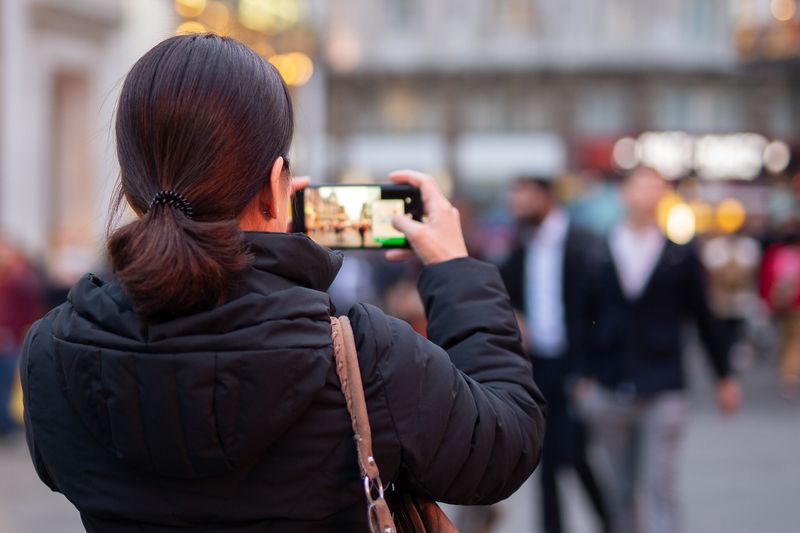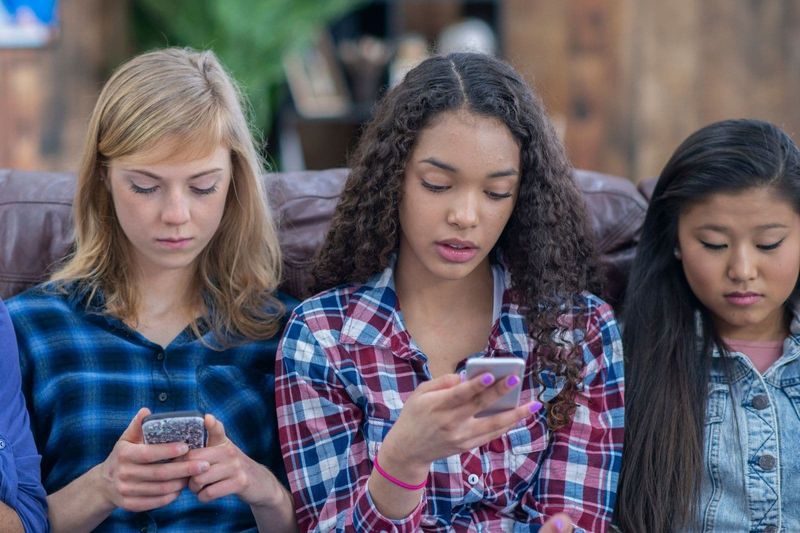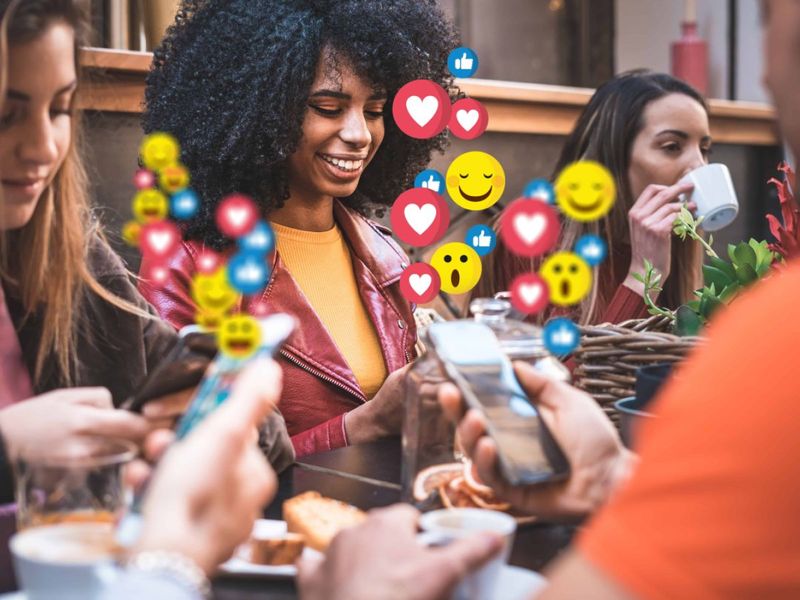19 Things Modern Culture Has Normalized That Are Actually Disturbing
In today’s fast-paced world, societal norms have shifted dramatically. Many practices and mindsets once considered unusual or concerning have now become commonplace.
This blog post explores 19 behaviors and trends that modern culture has normalized, prompting us to question their impact on our lives and society.
1. Hustling through burnout like it’s a badge of honor

In a world driven by productivity, working to the brink of exhaustion is often celebrated rather than cautioned against. Many wear their burnout as a badge of honor, unaware of the toll on mental and physical health. But what will it cost in the long run?
Society often applauds those who push through fatigue and stress, equating success with sleepless nights and relentless hustle. This mindset can obscure the value of balance and rest, leading to detrimental health outcomes.
The glorification of overwork fosters a culture where rest is seen as laziness and self-worth is tied to productivity. It’s time to re-evaluate and prioritize well-being over perpetual busyness.
2. Turning therapy into TikTok soundbites

In an era of digital oversharing, therapy sessions have been trimmed into catchy soundbites for social media. What was once a private, introspective journey is now reduced to content for likes and shares.
This trend raises concerns about trivializing mental health struggles and reducing complex emotions to entertainment. Can true healing occur in the public eye?
While sharing experiences can foster community and understanding, the commodification of therapy may undermine its effectiveness. Authentic healing requires vulnerability and privacy, which can’t be captured in a 60-second video. Instead, therapy should be respected as a personal journey, not a social media trend.
3. Filming strangers for content without consent

Candid camera has taken a new form in the age of smartphones, but now there’s a darker edge. Capturing strangers without consent for online content raises ethical questions.
Paparazzi-style documentation of everyday life blurs the line between public and private, stripping individuals of their right to anonymity. Is entertainment worth the invasion of personal space?
These unsolicited recordings can lead to viral fame or shame, often without individuals’ knowledge or consent. The ease of sharing such content online only amplifies the issue, making it crucial for society to reconsider boundaries and respect privacy in the digital landscape.
4. Treating boundaries as optional

Personal boundaries are often overlooked, dismissed as optional in a world that values openness and connection. But ignoring these limits can lead to strained relationships and personal discomfort.
Boundaries are essential for healthy interactions, providing a framework for respect and understanding. Yet, many struggle to assert them, fearing rejection or conflict. Are we losing sight of the importance of personal space?
In an age of connectivity, it is vital to recognize and respect individual limits. Healthy boundaries foster mutual respect and prevent the erosion of personal well-being. Emphasizing their importance can lead to more fulfilling, balanced relationships.
5. Turning childhood milestones into social media clout

Childhood milestones, once cherished family memories, are now opportunities for social media recognition. Parents often feel pressured to showcase their children’s achievements online, seeking validation from virtual audiences.
This shift can overshadow the genuine joy and significance of these moments, turning personal experiences into public performances. Are we valuing likes over memories?
The pressure to create share-worthy content risks turning children’s lives into highlight reels rather than authentic experiences. It’s important to remember that these milestones belong to the children, and their significance shouldn’t be measured by online engagement. Reclaiming the authenticity of these moments is essential.
6. Watching trauma for “entertainment”

With the rise of true crime and dramatized documentaries, trauma has become a staple of entertainment. But consuming these stories without sensitivity can desensitize audiences to real suffering.
While these narratives can raise awareness and foster empathy, the line between education and exploitation is thin. Are we honoring the victims or glamorizing their pain?
The dramatization of trauma risks trivializing real-life experiences, reducing them to mere plot points. It’s crucial to consume such content responsibly and reflect on its impact, ensuring respect for those affected by these real events.
7. Accepting dating apps as the new norm without real connection

Dating apps have transformed how we meet potential partners, prioritizing convenience over connection. Swiping left and right has become a norm, often at the expense of meaningful relationships.
The ease of digital matchmaking can lead to superficial interactions, where appearances outweigh deeper connections. Are we sacrificing genuine relationships for efficiency?
While dating apps offer accessibility, they can also foster a culture of disposability, where individuals are seen as products to consume rather than people to know. It’s vital to seek real connections beyond the screen, valuing quality over quantity.
8. Thinking rest equals laziness

In a society that glorifies productivity, rest is often perceived as laziness. This mindset can deter individuals from prioritizing self-care and well-being. But isn’t rest essential for a balanced life?
The misconception that rest is unproductive overlooks its role in rejuvenation and health. Constant activity without breaks can lead to burnout and stress-related issues.
Reframing rest as a vital component of well-being can encourage healthier lifestyles and more sustainable productivity. It’s time to abolish the stigma around rest and recognize its importance in a fulfilling life.
9. Commodifying every hobby into a side hustle

In today’s gig economy, hobbies have become potential income sources, often pressuring individuals to monetize their passions. But does this trend risk turning joy into obligation?
The push to commodify hobbies can strip them of their original purpose: enjoyment and relaxation. When creativity is tied to income, stress and burnout can overshadow the joy of creation.
It’s essential to preserve hobbies as personal pursuits, free from the demands of productivity. Valuing leisure for its own sake can restore balance and keep passions pure, allowing creativity to flourish without financial pressures.
10. Comparing grief timelines like it’s a race

Grief is a personal journey, yet society often imposes timelines on mourning. Comparing grief experiences can lead to feelings of inadequacy or pressure to conform. Shouldn’t grief be respected as unique to each individual?
The idea that grief has an expiration date undermines its complexity, reducing it to a checklist rather than a process. This mindset can hinder healing and invalidate emotions.
Recognizing that grief is personal and non-linear can foster a more compassionate approach. Allowing space for individual experiences without judgment is crucial for genuine healing and support.
11. Normalizing “ghosting” as conflict avoidance

The digital age has introduced ghosting, where communication ceases without explanation, as a common practice in relationships. This avoidance strategy can leave individuals confused and hurt. Is this really an acceptable way to handle conflict?
Ghosting eliminates the need for confrontation, but it also removes closure and empathy from interactions. The ease of disappearing digitally fosters a culture of detachment and insensitivity.
Encouraging open communication and accountability can counteract this trend, promoting healthier relationships and emotional maturity. It’s time to challenge the normalization of ghosting and prioritize respectful interactions.
12. Rewarding emotional detachment as strength

In a society that values rationality, emotional detachment is often mistaken for strength. But does suppressing emotions truly build resilience, or does it create barriers to genuine connections?
While staying composed can be beneficial, equating emotional distance with strength can discourage vulnerability and authenticity. Are we mistaking walls for resilience?
Embracing emotions, rather than rejecting them, can lead to deeper relationships and personal growth. Redefining strength to include vulnerability challenges the narrative of detachment, encouraging openness and empathy.
13. Using productivity to measure self-worth

Productivity is often linked to self-worth, with individuals feeling validated by their ability to accomplish tasks. But equating value with output can lead to burnout and dissatisfaction. Is worth really tied to what we produce?
This mindset can overshadow personal fulfillment, as achievements become the sole metric of success. It can also lead to neglecting important aspects of life, such as relationships and self-care.
Reassessing the relationship between productivity and self-worth can foster a more balanced perspective, recognizing intrinsic value beyond achievements. Emphasizing personal growth and well-being over constant output is essential.
14. Treating self-care like consumerism

The self-care movement has been co-opted by consumerism, with products marketed as essential for well-being. But does purchasing items equate to genuine care?
This trend can overshadow the true essence of self-care, which is about nurturing mental and physical health. Are we buying into wellness instead of cultivating it from within?
Recognizing self-care as an internal practice rather than a commodity can restore its authenticity. Focusing on mindfulness and self-compassion over material goods encourages a more meaningful approach to personal well-being.
15. Public shaming disguised as “calling out”

The rise of social media has popularized calling out as a form of accountability, but it often crosses into public shaming. Can justice be served through humiliation?
While addressing wrongdoing is important, public shaming can perpetuate harm without fostering understanding or change. It can also backfire, leading to defensiveness rather than reflection.
Promoting constructive dialogue and empathy over public condemnation can encourage positive change. It’s crucial to differentiate between holding people accountable and perpetuating a cycle of shame and judgment.
16. Glorifying toxic independence

Independence is often celebrated, but the glorification of self-reliance can lead to isolation. Is being alone the ultimate goal, or are we missing out on the strength of community?
Toxic independence dismisses the value of collaboration and support, promoting a narrative of self-sufficiency over connection. This mindset can undermine relationships and personal growth.
Reevaluating the balance between independence and interdependence can foster healthier interactions and resilience. Embracing community and collaboration enriches life experiences and promotes collective well-being.
17. Faking confidence instead of building it

Fake it till you make it is a popular mantra, but pretending confidence can mask deeper insecurities. Are we building self-assurance or just an illusion?
While projecting confidence can be empowering, relying solely on appearances neglects the importance of genuine self-esteem. This approach can lead to imposter syndrome and self-doubt.
Developing true confidence involves acknowledging strengths and weaknesses, creating a foundation for authentic growth. Encouraging self-awareness and self-acceptance can lead to lasting empowerment.
18. Treating constant stimulation like wellness

In a digitally connected world, constant stimulation is often mistaken for wellness. But does endless engagement truly enhance our well-being?
The barrage of notifications and media can overwhelm rather than relax, detracting from mindfulness and peace. Are we confusing activity with fulfillment?
Prioritizing mindful engagement over constant stimulation can enhance well-being. Encouraging breaks from digital noise promotes relaxation, focus, and presence. It’s time to redefine wellness in a tech-saturated society.
19. Equating likes with belonging

In the age of social media, likes are often equated with belonging. But can virtual validation replace real connection?
Relying on likes for self-worth can overshadow the importance of genuine relationships. This mindset can lead to a cycle of comparison and insecurity.
Fostering real-world connections and self-acceptance can break this cycle, promoting a sense of belonging beyond digital approval. Valuing authentic interactions and self-compassion is key to true fulfillment.







